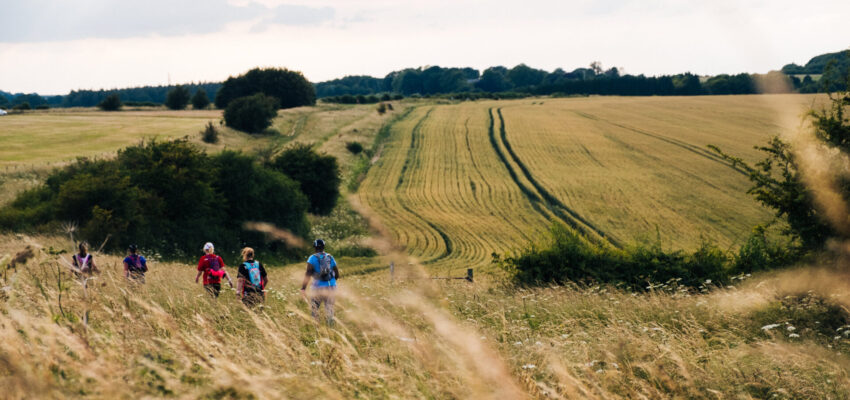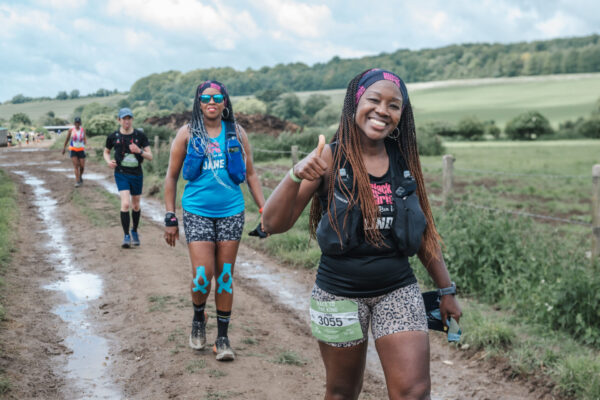So, you’ve signed up for a Threshold Trail Series ultramarathon. Maybe you’re taking on 50k, or perhaps you’ve gone all in with the 100k. Either way, congratulations—you’re about to embark on an adventure like none you’ve ever experienced before!
But before you hit the trails, here are a collection of learnings from those in our Threshold office who’ve already conquered this challenge. Things we wish we knew before our first ultra—lessons learned the hard way so you don’t have to.
- Your Longest Training Run Doesn’t Need to Be 100k (or Even Close)
One of the biggest concerns for first-time ultrarunners is how far they should train. You might think you need to run 80k in training to survive 100k, but that’s not the case. Instead, focus on consistent weekly mileage and back-to-back long runs. Running 20k on Saturday and 25k on Sunday is far more beneficial (and less risky) than a single brutal 45k effort.
- Walking is Not Just Acceptable—It’s Essential
In a marathon, walking feels like admitting defeat. In an ultra, walking is a strategy. Even the pros hike the hills to save their legs. Whether it’s a steep climb or just an opportunity to fuel up, knowing when to power walk instead of forcing a slow run can make all the difference.
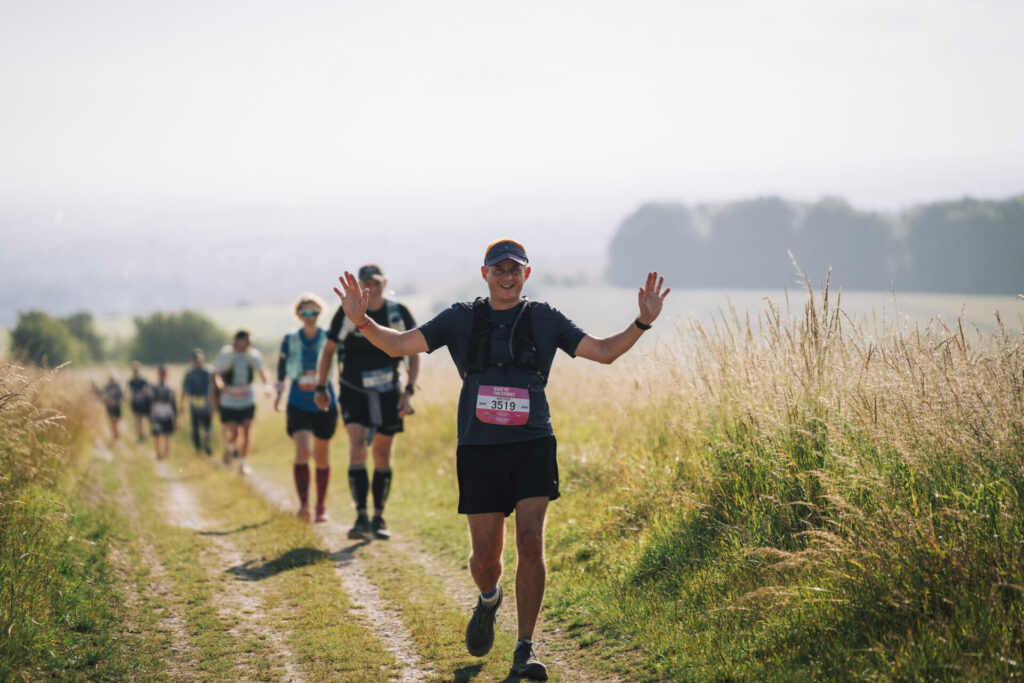
- Eat Early, Eat Often
Unlike shorter races where you can power through on gels alone, ultras require real food and a steady intake of energy. The golden rule: start eating before you feel hungry and keep fuelling throughout. Gels, bananas, flapjacks, crisps—whatever works for you. You’re not just feeding your run; you’re fuelling your survival.
- Your Feet Will Hate You (Prepare Accordingly)
Blisters, sore soles, and aching toes are part of the game. The best way to avoid disaster?
✔ Get trail shoes that fit well – Your feet will swell, so consider sizing up.
✔ Lube up – Vaseline or anti-chafe balm on your feet can be a lifesaver.
✔ Change socks – If you’re running 100k, fresh socks at halfway can feel like new legs.
- Mental Strength Beats Physical Strength
Yes, training matters. But when you’re deep into the race, tired, sore, and questioning your life choices at 70k, it’s your mind that will get you through. Break the race down into small wins—reaching the next checkpoint, finishing a tough climb, or just getting to the next tree. Keep moving forward.
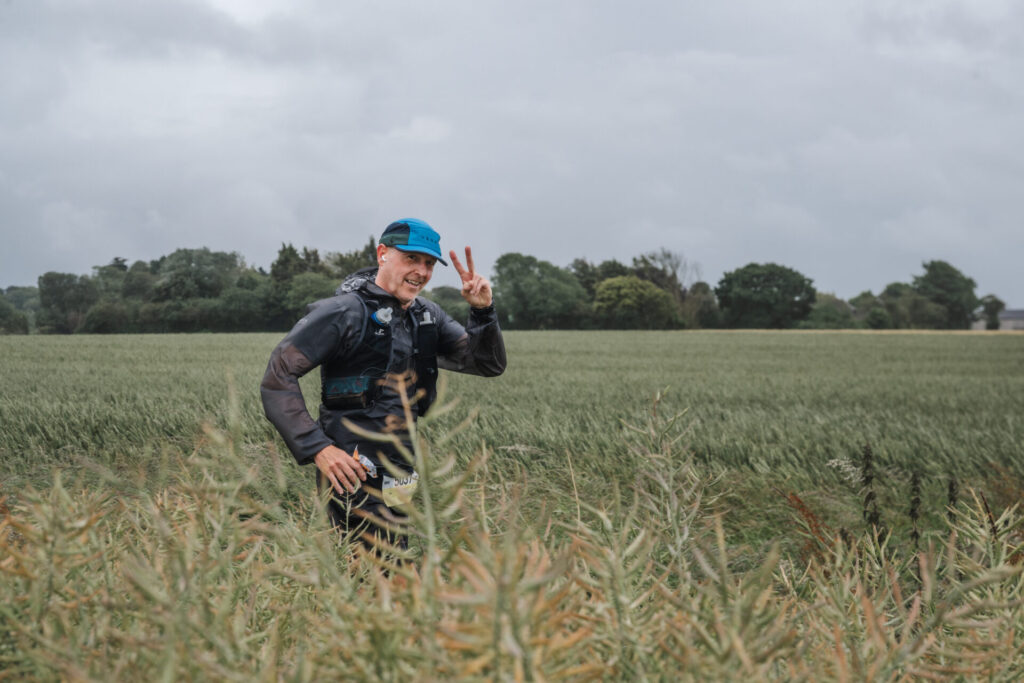
- The Right Gear Can Make or Break Your Race
Ultras aren’t just about running; they’re about managing yourself over hours (or even a full day) on the move. Here’s what you need:
✔ A comfortable running vest – Enough space for water, snacks, and essentials.
✔ A headtorch (if running through the night) – Trust me, you don’t want to rely on your phone light.
✔ A jacket for unpredictable weather – The British countryside can turn on you in an instant.
- Don’t Chase a Marathon Pace – This is a Different Beast
If you go out at your half-marathon or marathon pace, you will suffer later. Ultrarunning is about conserving energy so you can keep moving for hours. A steady, sustainable pace will serve you far better than a fast start.
- Electrolytes Are Just as Important as Water
Drinking plenty of water? Good. But if you’re not replacing electrolytes (salts lost through sweat), you risk cramping, fatigue, and even serious health issues. Use electrolyte tablets, sports drinks, or salty snacks to stay balanced.
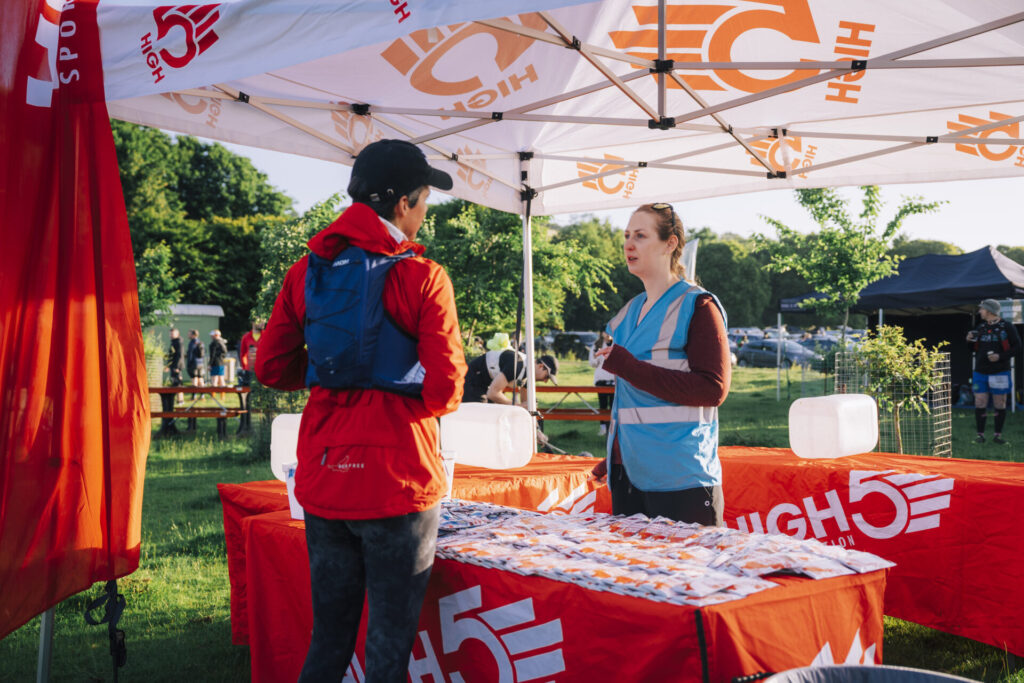
- The Power Of Strength Training
Ultrarunning isn’t just about logging miles—strength training plays a crucial role in building endurance and preventing fatigue. Strong legs help delay muscular exhaustion, keeping you moving efficiently deep into a race.
Single-leg exercises like Bulgarian split squats, step-ups, and lunges improve stability and mimic the demands of running, while deep squats—where the knee goes beyond 90 degrees—help strengthen the quads for descents and climbs. The best part? Lifting heavy isn’t necessary—a few well-structured strength sessions each week can make a significant difference on race day.
- The Finish Line Feeling is Worth Every Step
It will hurt. You will doubt yourself. There will be moments when quitting seems like the best option. But when you cross that finish line—whether it’s your first 50k or a brutal 100k—you will experience a high like no other. All the training, all the pain, all the effort will be worth it.
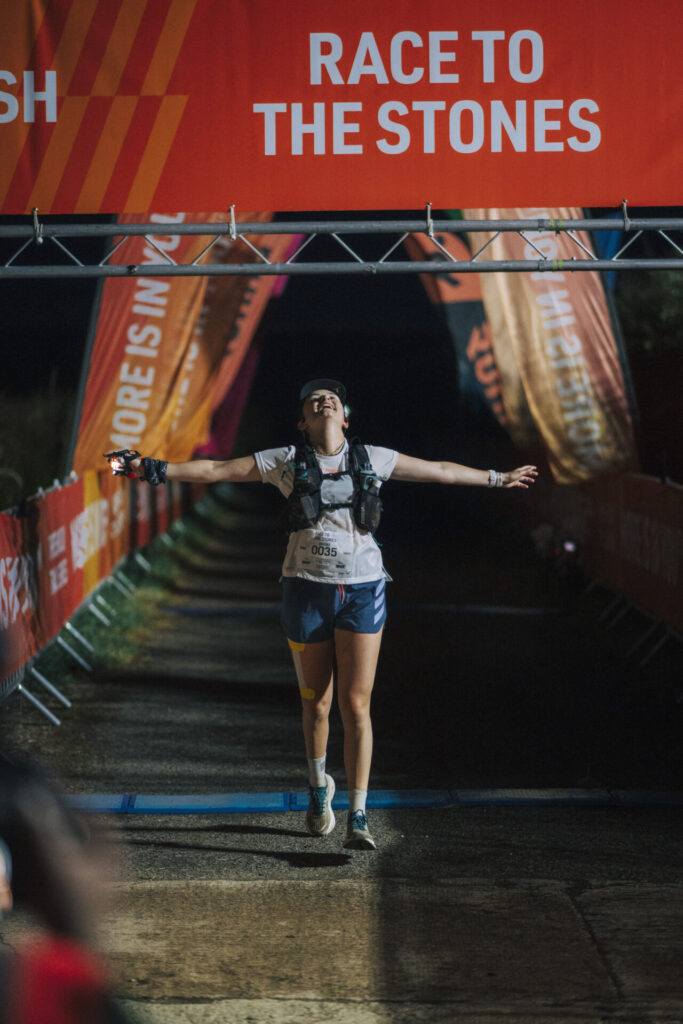
Final Thoughts
Your first ultra will challenge you in ways you can’t predict, but that’s the beauty of it. Prepare well, trust yourself, and embrace the adventure. Whether you’re taking on Race to the Stones or Race to the King, remember: you’re capable of more than you think.
See you on the trails!

